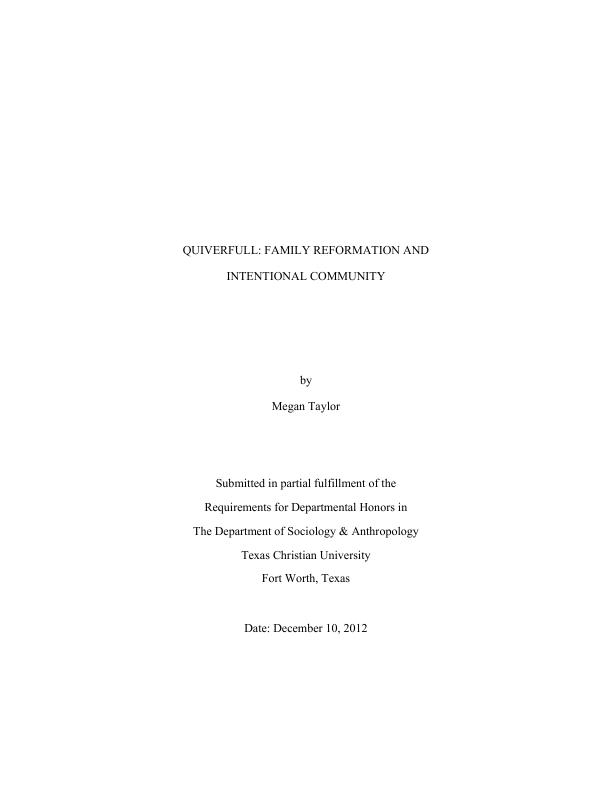Quiverfull: Family Reformation and Intentional CommunityShow full item record
| Title | Quiverfull: Family Reformation and Intentional Community |
|---|---|
| Author | Taylor, Megan |
| Date | 2012 |
| Abstract | This paper aims to provide a snapshot of the Quiverfull community in the United States, while at the same time, demonstrating how the ideal family structure informs other idealized social structures in this community. I will look at the history and evolution of the Quiverfull movement in the United States. My paper will also outline the core characteristics shared by Quiverfull families, these include: a) they are evangelical Christians, who view the Bible as the inerrant; b) the father is the spiritual and practical leader of the home; c) gender roles are starkly delineated and adhered to; d) children are viewed as blessings from God and all types of birth control (including natural family planning) are rejected. In addition to providing this background, I will argue that each family is conceptualized as a micro-community that interacts with other families to form a web of social connections that serve as the skeleton for this community. While this community is geographically widespread, and even though some families within the community do not refer to themselves as Quiverfull, there is a sense of separateness from the "world" among these families. This sense of separation underpins a shared identity among these families. |
| Link | https://repository.tcu.edu/handle/116099117/7376 |
| Department | Sociology and Anthropology |
| Advisor | Leatham, Miguel |
| Additional Date(s) | 2012-12-10 |
Files in this item
This item appears in the following Collection(s)
- Undergraduate Honors Papers [1362]
© TCU Library 2015 | Contact Special Collections |
HTML Sitemap



